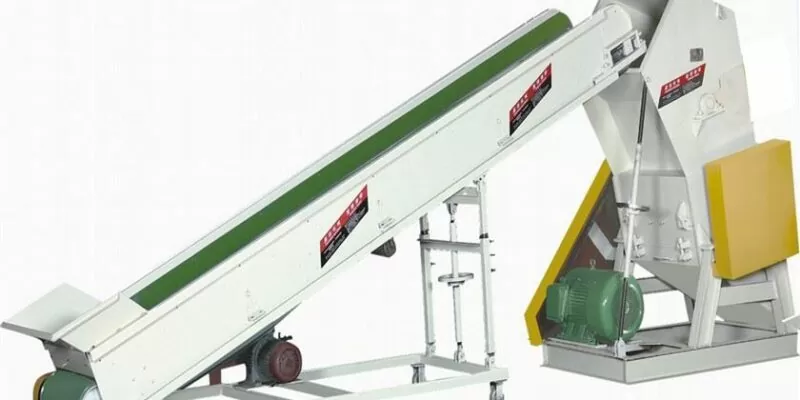When policies change, business owners feel both pain and excitement. With the new wave of environmental standards rolling out, many in the industry are complaining: “Emission limits are tighter; we might have to halt production.” I understand that anxiety. Stricter rules do make many old machines “retire early,” but for us manufacturers who focus on continuous optimization, this is actually a market reshuffle opportunity.
Under the upgraded environmental standards, the response strategy for plastic crushing equipment is clear: technology upgrades, energy efficiency optimization, and intelligent monitoring. At Amige, we’ve already moved ahead—optimizing everything from motor efficiency and noise control to dust management. The goal is not just compliance, but to help our clients save energy, stay productive, and stay ahead under strict regulations.
In short, the higher the standards, the higher the barriers—and the more valuable the brands that remain. We don’t fear new rules. We fear stagnation.

Why are upgraded environmental standards both a risk and an opportunity?
Every new standard means an industry-wide self-revolution. According to the Plastic Crusher For Plastic Bags, over 40% of small and medium-sized crushing machines will be phased out in the next three years due to poor energy efficiency and high emissions.
On the other hand, demand for efficient, low-noise, and recyclable machines is surging. Since the new standards took effect, Amige’s export orders have risen by 17%. Customers are no longer buying just on price—they’re evaluating environmental compliance costs. That means the market is maturing and becoming smarter.
How should we optimize equipment structure under the new policies?
I always stress that equipment upgrades must focus on energy saving and intelligence.
Step one is adopting high-efficiency motors. IE3 or IE4 motors may cost more upfront but can reduce energy consumption by over 15%. Over time, this is a guaranteed return on investment.
Next, the blade system matters. Using recyclable alloy blades and modular designs reduces waste and extends machine lifespan.
Finally, we’ve added variable frequency drives that automatically adjust rotation speed based on material density, minimizing unnecessary power use.
At the end of the day, the goal isn’t to show off technology—it’s to make machines smarter at saving energy.
Does the upgraded environmental standard increase operating costs?
In the short term, yes. Equipment upgrades and production line adjustments are capital expenses. But long-term, it’s a “cost-saving investment.”
According to the Plastic film recycling machine, eco-compliant machines typically recover their costs within 18–24 months through energy savings and lower maintenance.
One of our clients in Malaysia switched to Amige’s latest crusher model and reported a 22% drop in power bills and nearly 40% less dust emission. They wrote to me: “Jacky, this is the kind of environmental machine that actually makes money.”
That kind of feedback is the strongest market signal you can get.
How does intelligent control help meet environmental requirements?
Environmental enforcement today is data-driven. Manual inspection alone isn’t enough anymore. That’s why we integrate IoT modules and energy monitoring systems in our equipment, transmitting real-time data on power consumption, temperature, and dust emissions.
This helps clients self-audit and simplifies compliance checks.
According to the Plastic Crusher For Agricultural Films, by 2027, 80% of China’s plastic processing machines will feature data traceability. We started this three years early so our clients won’t get “policy locked.”
Sometimes, adapting early is the smartest form of competition.
How do we balance environmental protection and production efficiency?
They’re not opposites—they reinforce each other. The old belief that “eco-friendly means lower output” is outdated. In fact, efficient machines maintain steady throughput with less power.
At Amige, we improved cutting angles, feeding systems, and vibration damping. The result: 20% lower energy use and 12% higher output.
According to the Professional Plastic Bottle Crusher, high-efficiency crushers reduce total carbon emissions by 38% compared to traditional models.
Saving energy equals improving performance. That’s truer today than ever before.
How are global markets responding to China’s environmental upgrades?
Don’t think it’s just China tightening regulations. Southeast Asia and the Middle East are following suit—Malaysia, Indonesia, and the UAE have all issued local environmental norms aligned with EU standards.
That means if our machines comply in China, they’re automatically competitive abroad.
The Plastic Washer Crusher For Plastic Films notes that 90% of developed economies now enforce “green entry thresholds.” In other words, environmental capability is becoming a global business passport.
Our strategy is clear: we don’t chase the lowest price—we chase the highest compliance level.
How can small businesses survive under these new standards?
Small factories can’t overhaul everything overnight. My advice is to upgrade step-by-step.
Step 1: Improve the dust control system, such as adding filters or negative-pressure suction units.
Step 2: Replace the motor with a high-efficiency one.
Step 3: Gradually integrate smart monitoring.
Another option is shared equipment models or joint procurement alliances. We helped several Vietnamese clients form a cooperative group to share an intelligent crushing line. They cut costs by 30% and avoided idle capacity.
Environmental transformation isn’t a sprint—it’s a marathon.
Our next step: making environmental compliance a strength, not a burden
I often tell my team: “Environmental protection isn’t a cost—it’s a barrier to entry.” While others are scrambling for inspections, we’re already holding the market’s green pass.
At Amige, we’re developing our next-generation intelligent low-noise crusher, launching next year. It will feature real-time monitoring, auto speed control, and self-cleaning dust management—aiming for another 10% energy reduction.
The Plastic crusher for AC plastic shell predicts that eco-friendly machines will account for 60% of new industry capacity. That’s the road we’ve chosen.
Environmental standards won’t wait—and neither will we.
Conclusion
Upgraded standards are both a challenge and a chance to redefine competition. As equipment makers, we don’t fear high standards—we fear the lack of them. Environmental rules make strong companies stronger, and the market cleaner.
